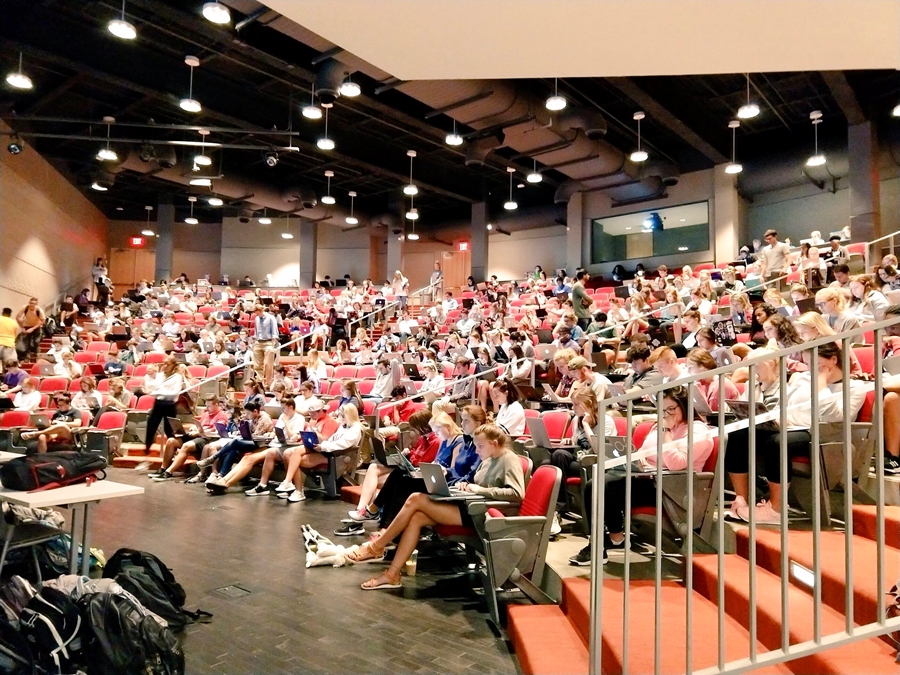
Building a stronger network at the university is about more than new equipment, it is also about providing practical benefits for both students and faculty in the classroom. This fall, the Achieve IT: Network Foundations project has strengthened the wired and wireless services in more than 40 percent of buildings on campus and has also paved the way for improved testing experiences.
For biological sciences instructor John Shadwick, this meant providing in-class, online tests for the first time ever for 1,200 students enrolled in his Principles of Biology course.
Previously, the network in this building could only support 350 devices at one time, which led instructors like Shadwick, with large lecture classes, to use outside services for online testing. For the past few semesters, Shadwick used a proctoring service that required students to test online in locations outside of class during a 24-hour window. This academic year, the cost for using this service would reach new heights at nearly $90,000 ($15 per student times five tests each).
Finding a more cost-effective option meant bringing exams back to the classroom so that Shadwick and his team of graduate assistants could administer these without the use of an outside service. This became a viable option earlier this fall after the network team upgraded both the wired and wireless equipment within Hillside Auditorium. Today, the building's network can support up to 1,350 devices. A fast and reliable internet means that an auditorium of more than 450 students can now test at the same time in the same location with ease.
"The testing experience was more successful than I thought it would be and way easier than previous methods," Shadwick said.
Not only did moving to this model save money, it also saved time.
"Before, I had to be available to answer test questions for an entire 24-hour period. Now, everything is done during the lecture period. Students even receive their test scores upon submission." Shadwick said. "The students are happier, and I feel like I have so much time left in my day."
In addition to an improved testing experience, the class received additional support from IT Services and Global Campus throughout the semester. On test days, staff from Teaching Innovation and Pedagogical Support (TIPS) were onsite to provide loaner computers and offer tech help if needed.
Kathryn Zawisza, director of academic technology and innovation, said Shadwick's experience is now helping the TIPS team assist other instructors who are making this available to their classes.
"We're here to be a resource for anyone who teaches as they strive to meet the needs of students in creative and innovative ways," Zawisza said. "If another instructor needs online testing support, we invite them to email us at tips@uark.edu. We're happy to help."
With a few more test scores now in gradebooks, Shadwick hopes to encourage fellow faculty members to reach out.
"When you join the faculty, you often feel alone and don't realize the resources that are available to you as an instructor. This university has great resources in IT Services and Global Campus," Shadwick said. "If you have an idea, talk to the team about your ideas and technology needs, there's a lot of support available."
To date, the Network Foundations project has completed upgrades in 61 buildings and is on track to finish in early 2019. View a list of completed buildings and learn more on the Network Foundations website.
Contacts
Chris Butler, director of communications
University Information Technology Services
479-387-3836, chrisb@uark.edu
Jennifer Brown, communications strategist
Information Technology Services
479-387-3849, jennb@uark.edu